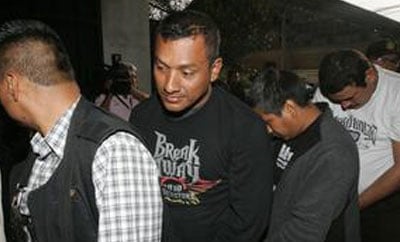Guatemalan authorities arrested 19 police officers alleged to have carried out kidnapping and robberies, highlighting the degree of corruption within the Guatemalan police and the urgent need for reform.
The officers were detained on charges of aggravated robbery, kidnapping, and abuse of authority, among other crimes, having operated in several zones of the capital Guatemala City, reported Siglo 21. The group is said to have stolen at least one million quetzales (over $125,000), and officials believe that those arrested were also involved in laundering money from drug trafficking.
Prensa Libre reported that the group committed the crimes while on duty and used official police identification, uniforms, and vehicles as cover.
Several of the police belonged to a unit tasked with transportation security and were also allegedly involved in illegal traffic stops, blackmail, and carjackings.
InSight Crime Analysis
The officers’ arrest highlights the urgent need for police reform in Guatemala. As an International Crisis Group (ICG) report released in July found, the National Civil Police (PNC) is regarded by the public and corrupt and incompetent. In the face of Guatemalan criminal gangs and Mexican drug traffickers in the country, they are often poorly trained and outgunned, yet progress in addressing these issues has been slow and burdened by financial constraints. For example, authorities opened a new Officer Training School in August, but did not have enough guns to equip graduates.
Some of the police arrested belonged to a unit that is tasked with providing security for the Transurbano buses, which are part of the Transmetro Bus Rapid Transit (BRT) system and use prepaid fare cards. The officers’ alleged robbery and blackmail of motorists highlights the fact that, despite the Transmetro’s potential for cutting down on extortion of bus drivers and passengers by gangs due to the lack of cash transactions, corrupt officers can circumvent this and pose a greater danger to citizens than gangs do.
As the ICG report noted, there is concern that President Otto Perez, will continue to rely on the military rather than on the police for security. Since taking power in January, he has increased the role of the armed forces in combating drug trafficking and created new military units tasked with fighting organized crime. This focus could have potentially harmful affects on the speed with which police corruption is addressed.

